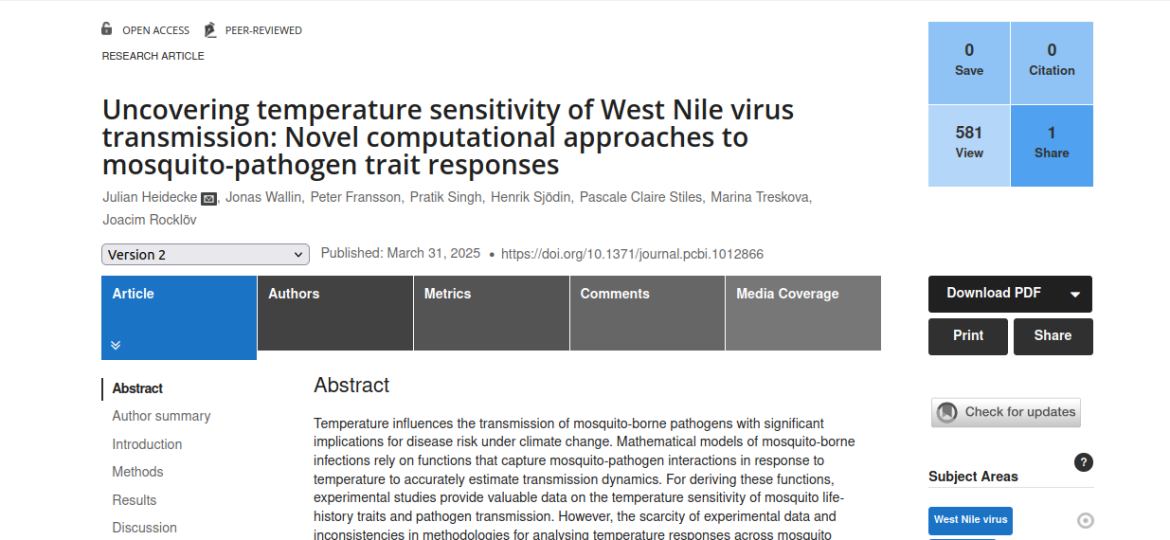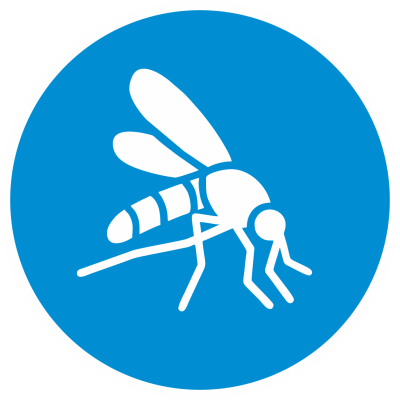In this study, Julian et al. investigated how temperature affects the transmission of WNV by six mosquito species. This knowledge is crucial for predicting the spread of mosquito-borne diseases, especially in the face of climate change. Large experimental laboratory datasets to identify optimal temperatures for WNV transmission have been analyzed. The results show that the best WNV transmission temperature is around 24°C with relatively little differences between mosquito species. Different configurations of mathematical transmission models cause variations in this optimal temperature, highlighting the importance of careful model selection. Moreover, measurements from different experiments cause further variability which indicates that there could be significant intra-species variation in temperature sensitivity. The statistical approach also allowed to identify the data needs that would decrease the uncertainty of these estimates
https://doi.org/10.1371/journal.pcbi.1012866









